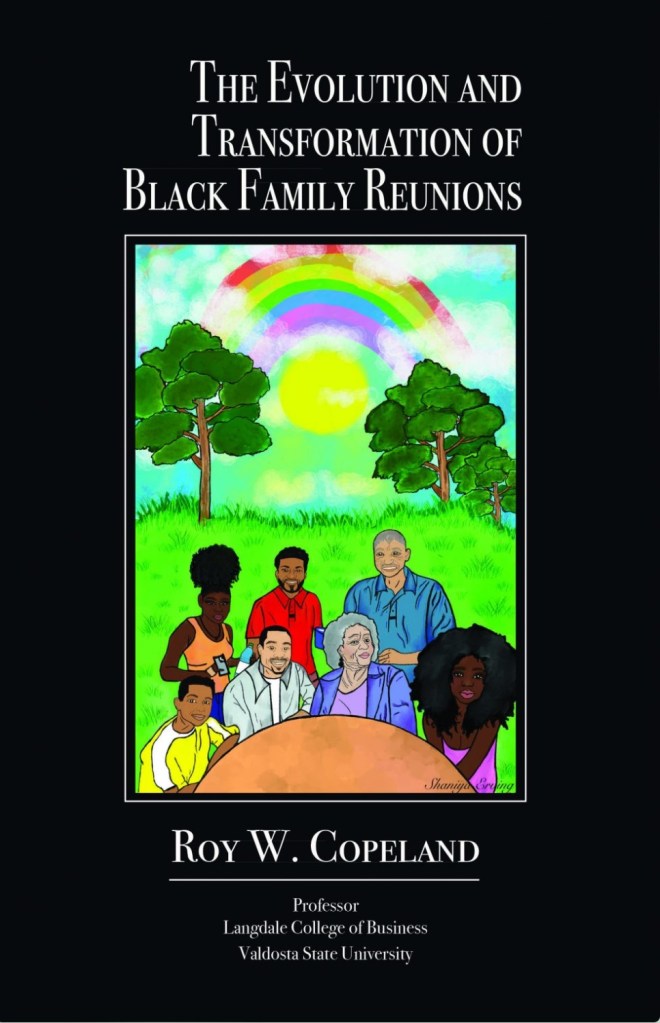S.Ga. author shares history, value of Black family reunions
Published 7:00 am Saturday, June 8, 2024

- ‘The Evolution and Transformation of Black Family Reunions’ by Roy Copeland is published by South Georgia-based Snake Nation Press.
VALDOSTA – Roy Copeland has a long and accomplished resume.
Attorney, college professor, mentor, a founding member of the 100 Black Men of Valdosta, which has raised thousands of dollars in scholarship money for area students in addition to other public works, public speaker, founder with wife Cheryl of the Copeland African-American Museum on the Valdosta State University campus, father of five children.
Now, he can add author to the list.
Copeland has penned “The Evolution and Transformation of Black Family Reunions,” a book published by Valdosta-based Snake Nation Press.
The book is an artful blend of legal advice, explanation of how reunions can chart the genealogy of Black families and history of how the Black experience in America has impacted and still impacts families today.
The history looks at the overwhelming influence three periods had on African-American families: “enslavement, post-Civil War and the Great Migration” – the latter being the period when Black families moved from the rural South to northern cities.
The book is as much about discovering and reuniting Black families as it is about reunions.
“Family reunions have evolved and transformed along with the heritage of the African-American people,” Copeland writes in the book’s preface. “They have been shining moments where we as a people celebrate the best of our tradition and custom. They are an example of our truest essence, our ability to survive, and the fortitude of connection that ties us all together. The more we respect and cherish these opportunities, the stronger the ties that bind us all.
“… Divided we are not nearly as fierce and powerful as we are together. That is, in its essence, the power of the family unit. Together, the family can withstand and thrive at a much greater level than any one person. ‘It takes a village,’ as they say. Your family is that village; the sturdy foundation on which we build all else.”
Copeland told The Valdosta Daily Times that various aspects of his work as a mentor, an attorney and a business law professor inspired him to write the book.
How do people find family, how do they organize reunions, how can family strengthen not only the group but the individuals within the group, how does understanding a family history help a family to move forward and succeed?
“How do I right the ship?” Copeland said. The book hopefully provides some of the answers.
Copeland’s family has strong South Georgia roots.
Roy Copeland is the oldest son of George and Mary Lou Copeland. Copeland has two brothers, Mark Copeland and Gary Copeland.
He has a half-sister, Sandra Tooley, the Valdosta City Council member. Copeland recalls he and his brothers being mischievous growing up in Valdosta.
Not too mischievous. Their father was strict but believed in traditional roles.
From the age of 9, Roy Copeland had a job. In past interviews, he recalled driving a truck as a 12-year-old to pick up lunch for the other workers.
He worked in tobacco fields.
He worked for Ashley Paulk’s Valdosta Electric.
He attended school in the early years of integration: Pine Grove Elementary School, Hahira Middle School and Lowndes High School.
After high school, he attended the University of Southern California with plans to become a doctor.
There, he changed his major from biology to political science, with the decision to become an attorney. The change suited him.
“I was driven,” he said in 2016. “I knew if I failed I would end up back in Valdosta working in a tobacco field. … Everybody knew I went to California to go to school. If I came back, they would know I failed. I was scared of failing. I was driven.”
He graduated USC, earned his juris doctorate from the University of Georgia and a master of laws from Temple University Law School.
He had returned to Valdosta in 1987 to practice law. He won what was the largest jury award ever — $168,000 — at the time in Lowndes County.
A woman had injured her knee after slipping on a hot dog and falling in a grocery store.
It was his first case.
Several years ago, he had the opportunity to teach college courses through the College of Business at Valdosta State.
He prepared for the job interview as if he were preparing for a jury trial. He got the job. He kept a limited law practice, while teaching classes in employment law, business law, health care law, etc.
An avid collector of artifacts from the Black experience, the Copelands donated his numerous pieces to VSU and the collection became the soul of the Copeland African-American Museum.
Nearly two years ago, Roy Copeland stepped away from his teaching and the law to retire.
The Copelands moved from Georgia to California.
There, he started writing. He penned “The Evolution and Transformation of Black Family Reunions” and began work on another book that is still in progress.
In recent months, the Copelands returned to Valdosta and he is taking some law cases again.
He said reunions are important in shaping the breadth and depth of family histories and family stories.
“These are not just family stories but they are a part of the American story,” Copeland said. “People need to know their stories. … If you don’t tell your story, who will?”
For more information on “The Evolution and Transformation of Black Family Reunions,” visit snakenationbooks.store.



